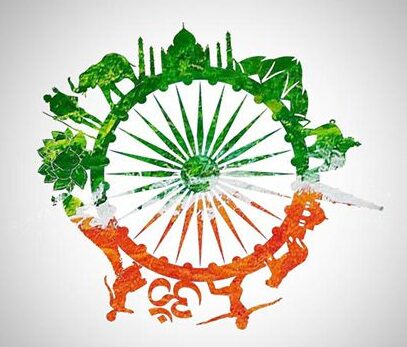
Spirituality is generally said to be a broad concept that makes sense of a person’s search for meaning, purpose, and connection to something greater than themselves. More so, in contrast with the organized religion, which is, generally, associated with systematic beliefs and practices, spirituality is often more personal and subjective. Some elements of spirituality are:
- Inner Journey: It is, most of the time, defined as a process of self-discovery, self-awareness, and growth of a person. People often aim to formulate sense of their thoughts, emotions, and experience.
- Relationship: Perhaps, spirituality makes it possible for an individual to relate to people, nature, or the universe. It gives a feeling of belonging to others.
- Meaning and Purpose: Spirituality answers most of the questions about existence, life, and human experience. It gives direction and meaning to life and a sense of purpose.
- Transcendence: It could be a sense of awe, wonder, or even being one with the universe such as those experienced beyond ordinary life.
- Values and Ethics: Spirituality tends to influence one’s values and ethical reasoning-which is a direction in how one interacts with others and the world.
- Practices. Inasmuch as spirituality may be independent of the practices of religion, many go as far as using meditation, prayer, mindfulness, and rituals in spiritual activities.
In this respect, spirituality is deep personal and constantly evolving; it signifies deep belief in one’s practice, ideology, and influences with the world.
Indian spirituality is so rich and all embracing, it truly spans thousands of years, covering philosophies, practices, and traditions that actually weave up in this most beautiful tapestry. In truth, very often this search is characterized as being for meaning, self-realization, and a sense of connection with the divine, or the universe. Here’s an overview:
Key Features of Indian Spirituality
- India consists of various spiritual traditions, of which Hinduism, Buddhism, Jainism, and Sikhism have their own philosophies and practices.
- Other causes are the natives’ ways, mysticism, and the assimilation of modern spiritual movements.
- Vedic Literature: The texts, comprising the Vedas, are ancient texts that originally established the Hindu psyche and discuss such notions as Dharma (duty) and Rta (cosmic order).
- Upanishads: The texts discuss very deep philosophical questions about reality, the self, and ultimate reality, which are called Atman and Brahman.
- Yoga: Various types of yoga included Bhakti, Karma, Jnana, and Raja provided a set of practices meant to lead towards spiritual growth, focusing on devotion, action, knowledge, or meditation, respectively.
- Meditation: Mindfulness and concentration have been very common techniques in many Indian spiritual traditions. They are used for arriving at inner peace as well as for self-discovery.
- Believing in the interconnectedness of individual souls, known as Atman, with the universal soul, called Brahman, is one of the core concepts of Hindu philosophy.
- Buddhism is based on ideas such as selflessness and life’s mutuality and the impermanence of the self, with foundations like compassion and no attachment.
- In most such traditions, for imparting guidance or wisdom, a guru or spiritual teacher plays a crucial role to guide an individual through the spiritual journey.
- Spirituality can also be manifested in ritual, ceremony, and celebrations with a number of deities, seasons, and the different facets of life.
- These helps to foster a feeling of community and belongingness to heritage.
- Values of Indian spirituality include non-violence (Ahimsa), truth (Satya), and compassion. These serve as the foundational principles on good living and relationship with others.
- Modern Indian spirituality, in some ways, is streamlined by the material world, it is centered on personal experience and inner growth.
- Organisations like Transcendental Meditation, the mystiques of Sri Sri Ravi Shankar, Sadhguru, and others attract millions of followers from all nooks and corners of the globe.
Indian spirituality can provide deep answers to the question of life, the purpose of life, and connections. It inspires living a journey of self-discovery, moral values, and communal harmony, thus making it relevant not only historically but also today.
